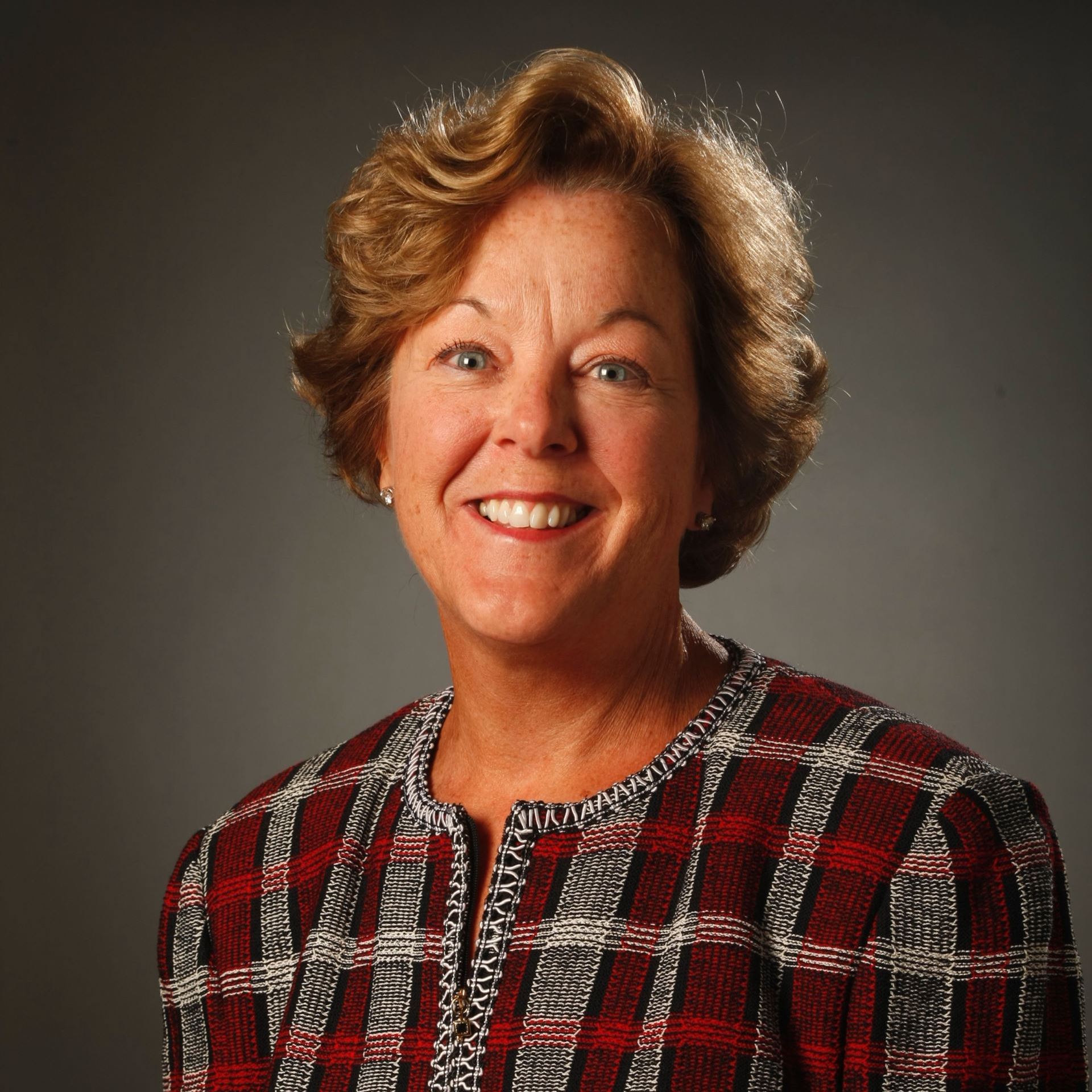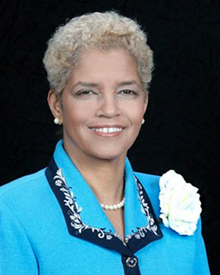2001 to 2002 – National Association of Collegiate Women Athletic Administrators
During Peg Bradley-Doppes’ time as president, NACWAA expanded the NACWAA/HERS Institute from one offering to two (east and west) and hosted its inaugural Institute for Athletics Executives.
“The NACWAA/HERS Institute is an outstanding professional development program, and it is wonderful that we will be able to offer two sites and two dates to reach more women. The enthusiasm of former attendees combined with the passion from the outstanding faculty has made this program a must for personal and professional development” (NACWAA Winter Issue 2002).
After two years of working towards the development and funding for an institute to enhance opportunities for women to move into leadership positions, the NCAA Committee on Women’s Athletics and NACWAA announced the Institute for Athletics Executives. This institute focused on developing the skills necessary to succeed and advance in intercollegiate athletics. This institute was made possible by a grant from the NCAA, and it promised to be an “experience that sets a new benchmark for professional educational programs” (Winter Issue 2002).
The first institute was held in Wilmington, North Carolina, from July 28-31 of 2002. The inaugural class included 15 attendees ranging from athletic directors, conference commissioners, associate athletic directors, and associate conference commissioners chosen through a comprehensive selection process.
In the words of Peg: “The Institute for Athletics Executives was a first-class learning experience. As a participant in this institute, it was both an honor and privilege to be a part of it. NACWAA continues to provide its members with professional and personal growth, influence philosophies, and address issues on local and national levels” (NACWAA Summer Issue 2002).
Other major accomplishments from NACWAA during this time:
- Foundation Fund made first grant offerings to support 10 NACWAA members to attend Fall Forum
- NACWAA met with the Dll project team to strengthen support for the appointment of more qualified women to the SWA position
- NACWAA began contributing articles to the NACDA Athletic Administrator magazine
- NACWAA was represented at the National Collegiate Golf Invitational, NCAA Convention, and the Women’s Final Four
NACWAA continued to be committed to recognizing the achievements and successes of administrators working in athletics. Click here to view all NACWAA/ Women Leaders in College Sports award winners.

Peg Bradley-Doppes
University of North Carolina-Wilmington
Peggy Bradley-Doppes serves as the Vice Chancellor for Athletics and Recreation and Ritchie Center Operations at the University of Denver. Peg took the Director of Athletics and Recreation position at DU in 2005 after serving as the Director of Athletics at the University of North Carolina-Wilmington from 1999-2004. She began her career in administration at the University of Michigan where she held the position of Senior Associate Athletic Director and Senior Woman Administrator.
Peg got her start in collegiate athletics as a coach, serving as the head volleyball coach for Miami University, the University of North Carolina, and the University of Michigan. As a coach, Peg led her teams to four conference championships and received three Coach of the Year honors.
As an administrator, Peg has made a lasting impact on collegiate athletics through her abundant NCAA Committee service, including the Management Council, Division I Women’s Basketball Committee, Committee on Women’s Athletics, Division I Volleyball Committee, Peer Review Team, Olympic Sports Liaison Committees, and the NCAA Division I Leadership Council.
She has testified before the U.S. Senate, the Paige Commission, the Knight Foundation Commission on Intercollegiate Athletics, and the Commission on Opportunity in Athletics. In 2004, Peg received the Robert R. Neyland Outstanding Athletics Director Award from the All-American Football Foundation and the NACWAA Administrator of the Year Award.
NACWAA Board Members 2001-02
Lauren Anderson, University of Rhode Island
Barbara Bolich, Dominican University
Dru Hancock, Big 12 Conference
Carolayne Henry, Mountain West Conference
Janet Justus, Ex-Officio, Verrill & Dana, LLP
Karin Lee, University of Alabama
Jane Meier, Northern Kentucky University
Jane Meyer, University of Iowa
M. Dianne Murphy, President-Elect, University of Denver
Nona Richardson, Valparaiso University
Barbara Schroeder, Regis University
Judy Sweet, Past President, NCAA
Patty Viverito, Missouri Valley Conference
Joyce Wong, Eastern Connecticut State University
Connee Zotos, Ex-Officio, Drew University
Lauren Anderson, University of Rhode Island
Barbara Bolich, Dominican University
Dru Hancock, Big 12 Conference
Carolayne Henry, Mountain West Conference
Janet Justus, Ex-Officio, Verrill & Dana, LLP
Karin Lee, University of Alabama
Jane Meier, Northern Kentucky University
Jane Meyer, University of Iowa
M. Dianne Murphy, President-Elect, University of Denver
Nona Richardson, Valparaiso University
Barbara Schroeder, Regis University
Judy Sweet, Past President, NCAA
Patty Viverito, Missouri Valley Conference
Joyce Wong, Eastern Connecticut State University
Connee Zotos, Ex-Officio, Drew University
World News

Shirley Clarke Franklin was elected as the first female mayor of Atlanta in 2001. This also marked the first black woman to be elected as mayor of a major Southern city.
Shirley was lauded for her efforts in making the City of Atlanta “green.” With solid popular support, Shirley was reelected as the Atlanta Major in 2005, garnering more than 90% of the vote. Also in 2005, TIME Magazine named her one of the five best-city American mayors.
In 2006, The White House Project named Shirley Franklin one of its “8 in ‘08”, a group of eight female politicians who could possibly run and/or be elected president in 2008. She was the only person on the list to not be a governor, senator or presidential cabinet member, and one of two African-Amerian women on the list; the other was United States Secretary of State Condoleezza Rice.
